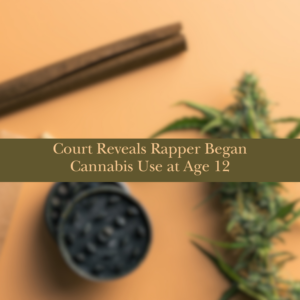San Marcos, Austin Secure Initial Court Wins for Cannabis Reform

Legal Battle Over Cannabis Decriminalization in Texas Cities: San Marcos Wins, AG Paxton Vows Appeal
In a significant legal development, a Hays County District Judge dismissed a lawsuit by Texas Attorney General Ken Paxton seeking to compel the City of San Marcos to enforce marijuana possession arrests, despite a local ordinance decriminalizing such offenses. This ruling is part of a broader struggle between state authorities and several Texas cities that have passed similar decriminalization measures, raising questions about the enforcement of state law at the local level.
Background on San Marcos’ Decriminalization Effort
In 2022, a substantial majority (nearly 82%) of San Marcos voters approved Proposition A, an ordinance that effectively decriminalized the possession of up to four ounces of marijuana. This initiative was led by a coalition of advocacy groups, including Mano Amiga, Ground Game Texas, the San Marcos Democratic Socialists of America, the Hays County Libertarian Party, the Hays County Democratic Party, and the Texas Cannabis Collective. The campaign successfully gathered 10,000 signatures to place the measure on the ballot.
Proposition A ended citations and arrests by the San Marcos Police Department for misdemeanor possession of marijuana, although exceptions were made for investigations involving felony-level narcotics or violence. The ordinance also eliminated citations for possession of drug residue or paraphernalia, prohibited the use of city funds or personnel to test for THC levels, and barred police from using the smell of marijuana or hemp as probable cause for searches.
Importantly, this ordinance applies exclusively to the San Marcos Police Department and does not affect other law enforcement agencies in the area, such as Texas State University police or the Hays County Sheriff’s Office.
Legal Challenges from the State
Attorney General Ken Paxton’s lawsuit against San Marcos, along with similar suits against Austin, Killeen, Elgin, and Denton, argued that these local ordinances violated state law, which mandates the enforcement of drug-related offenses, including marijuana possession. Paxton asserted that these cities’ policies promoted lawlessness and undermined state authority.
“I will not stand idly by as cities run by pro-crime extremists deliberately violate Texas law and promote the use of illicit drugs that harm our communities,” Paxton stated in January, emphasizing that only the legislature has the authority to change state law.
Court Decisions and Reactions
The case against San Marcos was dismissed by Judge Sherri Tibbe, who upheld the city’s right to prioritize law enforcement resources. Similarly, in June, Travis County District Judge Jan Soifer dismissed a lawsuit against Austin, stating that there was no legal basis for the case. Both rulings have been seen as victories for local governance and the autonomy of cities to enact laws reflecting the will of their residents.
Ground Game Texas, a progressive advocacy group instrumental in these decriminalization efforts, anticipates that Paxton will appeal these decisions. The group remains optimistic, seeing the dismissals as affirmations of local sovereignty and voter rights.
In Elgin, the lawsuit was resolved through a consent decree, a legal agreement where the city agreed not to implement the decriminalization ordinance without admitting any wrongdoing. Elgin’s city manager, Tom Mattis, noted that the litigation was a “ridiculous waste of public resources and time,” as the local police had not enforced the ordinance due to state law conflicts.
In Denton, the implementation of decriminalization has been stalled, with City Manager Sara Hensley citing legal conflicts with state law as a barrier to enforcement. The legal case against Killeen is still pending, with no resolution in sight.
Broader Implications and Future Actions
The dismissals of these lawsuits have broader implications for Texas cities advocating for cannabis decriminalization. Eric Martinez, executive director of Mano Amiga, hailed the court’s decision as a victory for community advocacy and local governance. He emphasized that these rulings support the ability of local officials to enact policies aligned with the wishes of their constituents without fear of state retribution.
Ground Game Texas has continued its efforts, recently securing enough signatures to place a decriminalization measure on the ballot in Dallas. If approved, Dallas would become the largest city in Texas to decriminalize lesser marijuana offenses, potentially setting a precedent for other municipalities.
Catina Voellinger, executive director of Ground Game Texas, expressed optimism about the movement’s future, stating, “This decision, along with the recent verification of our petition in Dallas, is a welcome reminder that this is a winning movement, and one we look forward to continuing to build across the state this November.”
As the debate over cannabis policy continues to unfold in Texas, these local efforts highlight a growing demand for reform and greater local control over drug enforcement policies. The outcomes of these legal battles and upcoming votes will significantly impact the future landscape of cannabis regulation in the state.











